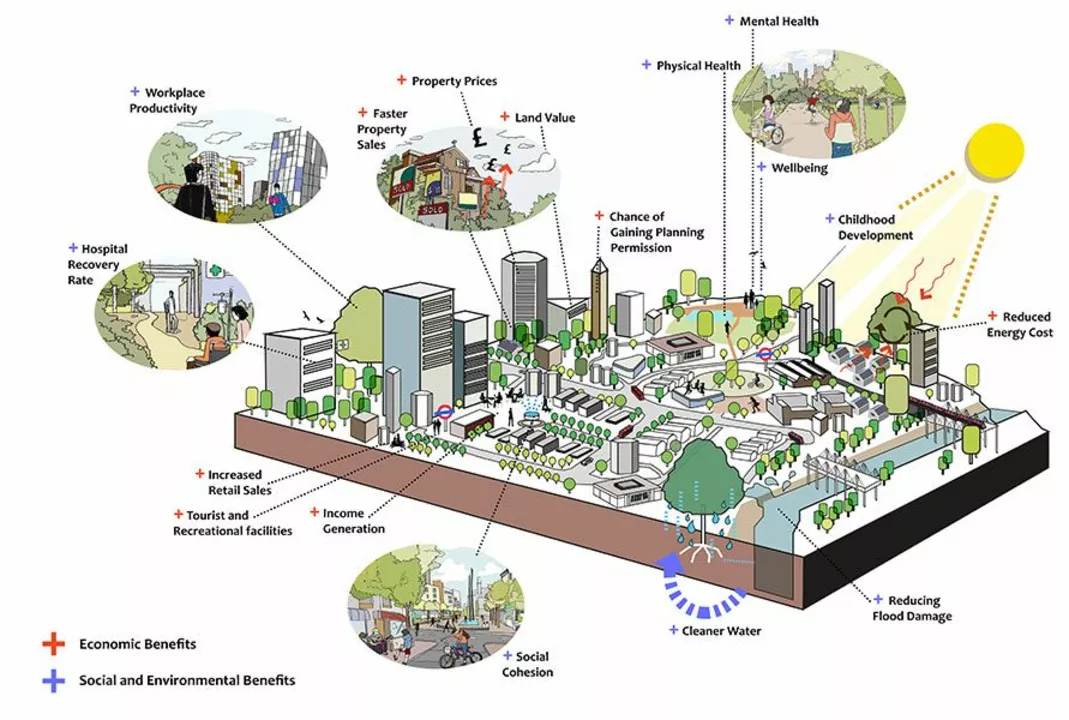Introduction: A Look at Government Built Roads
As a blogger and concerned citizen, I've often wondered about the role of government in our daily lives. One area that always seems to spark debate is the issue of government-built roads. Some people argue that it's socialism, while others believe it's a necessary function of a well-functioning society. In this article, I'll explore the question: Are government-built roads socialism? I'll break down the topic into nine sections, each with a commercial heading, to provide a comprehensive analysis of this complex issue.
1. The Role of Government in Society
Before diving into the specific topic of roads, it's important to consider the broader role of government in society. Governments exist to serve and protect their citizens, providing essential services, and ensuring a stable environment for people to live and work. In many cases, this involves building and maintaining infrastructure, such as roads, bridges, and public transportation systems. While some may argue that this is a form of socialism, it's important to recognize the difference between government intervention and the complete control of all aspects of life by the state.
2. The History of Road Building
Roads have been an essential part of human civilization for thousands of years, dating back to ancient Rome and beyond. Historically, road building and maintenance have been the responsibility of governments, as they recognized the importance of connecting people and facilitating trade. Over time, different societies have taken various approaches to road construction, but the general trend has been for governments to play a central role in this process.
3. Public vs. Private Road Construction
Some argue that roads should be built and maintained by private companies rather than the government. While there are examples of privately built and maintained roads throughout history, this approach has its own set of challenges. For instance, private companies may prioritize profit over public needs, leading to poorly maintained roads, high toll fees, or limited access for certain groups. In contrast, government-built roads are generally guided by public interest rather than profit, ensuring that the needs of all citizens are met.
4. The Economics of Road Building
Building roads is an expensive endeavor, and governments often finance these projects through taxes, bonds, or other public resources. The argument that government-built roads are socialism stems from the idea that using public funds for these projects is a redistribution of wealth. However, it's essential to recognize that roads benefit everyone, not just specific individuals or industries. A well-connected and maintained road system supports economic growth, job creation, and overall quality of life for all citizens.
5. The Social Benefits of Government-Built Roads
Aside from the economic benefits, government-built roads also provide numerous social benefits. A well-developed road system enables access to education, healthcare, and job opportunities for all citizens, regardless of their socioeconomic status. This can help reduce inequality and promote social mobility, leading to a more just and equitable society. In this sense, while government-built roads may involve some redistribution of wealth, it's important to consider the broader social benefits that result from this public investment.
6. The Environmental Impact of Road Construction
One criticism of government-built roads is the potential environmental impact of road construction. It's true that building roads can lead to habitat destruction, increased pollution, and other environmental issues. However, governments can also play a crucial role in promoting sustainable road construction practices, investing in public transportation, and encouraging alternative modes of transportation. In this way, government-built roads can be part of a larger effort to reduce the environmental impact of transportation and promote sustainable development.
7. The Future of Road Building and Transportation
As technology evolves and the world becomes more interconnected, the future of road building and transportation is likely to change. Governments will need to adapt to new technologies, such as self-driving cars, and invest in alternative modes of transportation, such as cycling and public transit. This will require a continued commitment to public investment in infrastructure, which some may argue is a form of socialism. However, it's important to consider the broader benefits of these investments for society as a whole.
8. The Debate Over Government-Built Roads and Socialism
Ultimately, the debate over whether government-built roads are socialism depends on one's definition of socialism and the role of government in society. While it's true that public investment in infrastructure involves some redistribution of wealth, it's important to recognize the broader benefits of these investments for all citizens. In my view, government-built roads are not socialism, but rather a necessary function of a well-functioning society that prioritizes the needs of its citizens.
Conclusion: Government-Built Roads and the Greater Good
In conclusion, while the question of whether government-built roads are socialism is a complex and nuanced one, it's clear that public investment in infrastructure plays a critical role in promoting economic growth, social equality, and overall quality of life for all citizens. Rather than labeling these investments as socialism or dismissing them outright, we should appreciate the essential role that government-built roads play in our modern society and strive to ensure that they are built and maintained in a way that benefits everyone.



